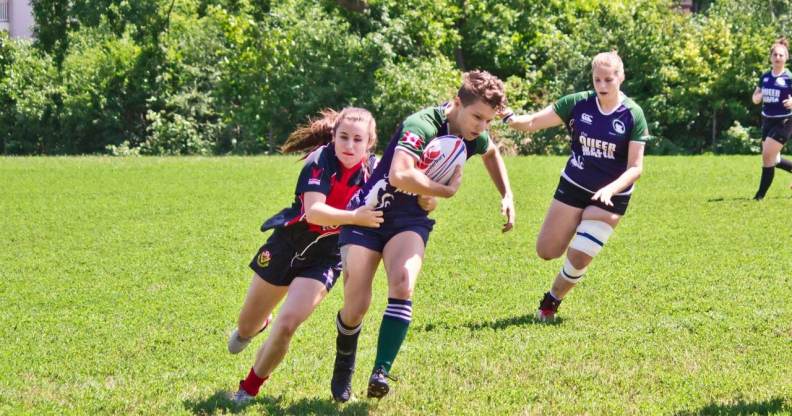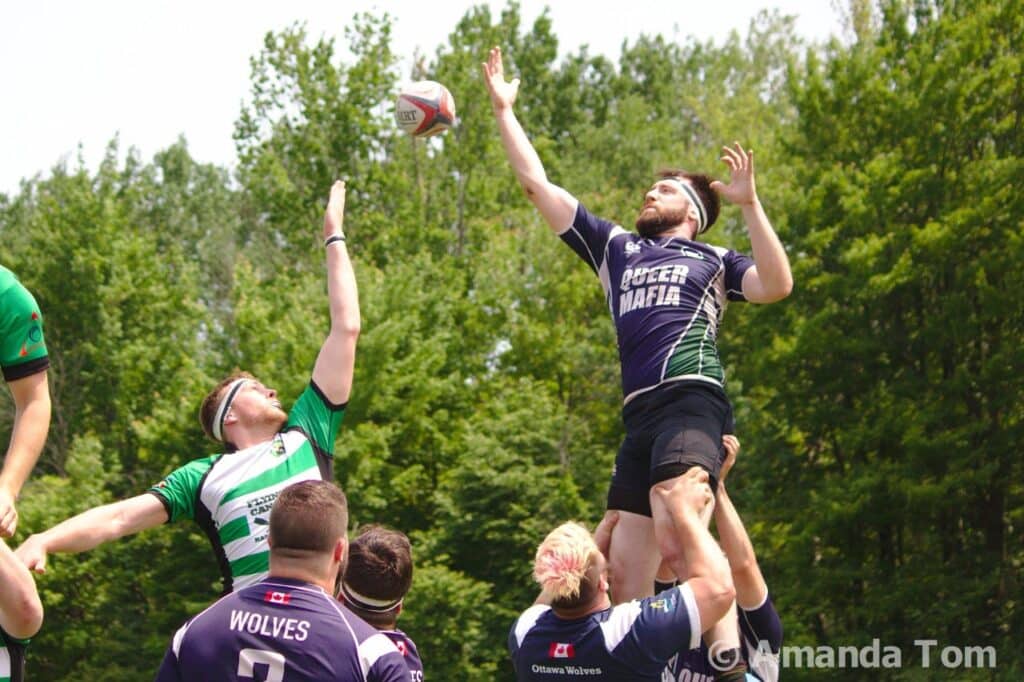Rugby’s ‘gay world cup’ begs sports bosses to ditch trans athlete bans: ‘It’s causing serious harm’

LGBTQ+ rugby tournament organisers say trans exclusion in sports causes ‘serious harm’ as event reaches key milestone (Amanda Tom/The Bingham Cup)
The organisers of rugby’s “gay world cup” say the sport is at risk of causing “serious harm” by excluding trans athletes.
The Bingham Cup was founded in 2002 in memory of Mark Bingham, one of the passengers who fought back against hijackers onboard United Airlines Flight 93 on 9/11, and who helped save countless lives.
Along with Todd Beamer, Tom Burnett and Jeremy Glick, Bingham hatched a plan to retake the plane from the hijackers, successfully diverting it from a busy Washington DC landmark to an empty field in Pennsylvania. There were no survivors.
Bingham was a gay man and a passionate rugby player, who played for the San Francisco Fog and helped set up the Gotham Knights in New York City.
The Bingham Cup was set up in his honour, and from small beginnings, this year more than 20 countries are represented.
The tournament, which is being held in Ottawa, Canada until Sunday (21 August), is open to all LGBTQ+ rugby players, and has previously been hosted in San Francisco, London, New York, and Amsterdam.

(Amanda Tom/The Bingham Cup)
While the tournament is focused on celebrating its first decade, it’s also taking a stance on the recent decision of many sporting bodies to bar trans women from competing, hosting a summit aimed at “reversing” World Rugby’s decision to ban trans female athletes from its game.
The summit, held on Tuesday (16 August), focused on “the serious harm caused by World Rugby’s ban of trans women and girls”, Charbel Choueiri, of Bingham Cup’s board, told PinkNews.
“Trans children and teenagers experience poor health across all indicators measured by public health agencies, but if they could play sport in a safe and supportive environment this could provide this with many much-needed health and psychosocial benefits,” said Choueiri.
He added that the summit included a “strategy session focused on reversing World Rugby’s policy”.
Worth the wait!
After a COVID-enforced two-year delay, the @binghamcup returns this weekend in Ottawa 🙌🏳️🌈@igrugby | #RugbyForAll https://t.co/1a97iwDyRf
— World Rugby (@WorldRugby) August 12, 2022
As well as aiming to uplift trans athletes, this year the Bingham Cup has also seen history made.
Australian rugby league player Ellia Green, a gold medal Olympic champion, came out during the games’ summit on homophobia and transphobia, saying it was “daunting” to come out at a time when trans people are being banned from multiple elite sports.
“Being open about my gender identity is a really difficult thing to do these days. All you have to do is turn on the TV, look on social media platforms, and you can see the amount of bullying, harm and discrimination that goes on about gender identities,” he said.
“It’s extremely harmful, so for someone to be open and honest about their identity to the public eye is absolutely daunting.”
Green, 29, criticised the decision to ban trans athletes from elite rugby as “disgraceful”.
He added: “Imagine not being able to do what you love because of how you identify, banning transgender people from sport, I think is disgraceful, and I think it’s hurtful.
“I think that the alarmingly high rates of suicide and the mental health challenges which trans and gender diverse youth experience will get even worse.”

